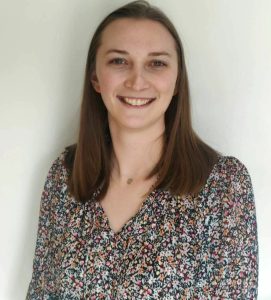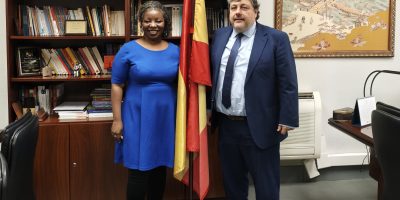We’ve entered Year 2 of our study of the English language learning proclivities of FernUni students. Which language skills are most needed? Which learning paths do students opt for, and how effective is a self-paced, online route in helping learners achieve their individual goals?

Elise Renson is happy to be on hand to help the FernUniversität gain the most out of the Altissia language learning platform
Managing the FernUniversität account at Altissia is Elise Renson. She took some time to let us know about her daily work, her own language learning adventures and why you too ought to try Altissia.
When did you join the team?
I joined the Altissia team in May 2022. I have always been keen on languages, and Altissia’s vision that language learning brings people closer together highly resonates with me. So, when I saw the ad for this position, it only felt logical to apply and I was lucky enough to be hired!
What is your role there?
I am an Account Manager for the Belux (Belgium-Luxembourg) and DACH (Germany-Austria-Switzerland) markets. My job is to support our customers, which are mainly universities and companies, in making sure that the projects we carry out together run smoothly and that the use of the platform yields results for the users.
My day-to-day role is to manage the operational side of projects for our clients (teacher training sessions, license creation, data reporting, evaluation of the different projects, etc.), and to implement communication or action plans for end users (for example newsletters, contests, platform presentation, webinars, etc.) to increase user engagement and motivation.
For effective project management, it is essential to understand who my clients are, what are the linguistic needs for their organisation, and who are the end users.
What do you most like about working there?
I highly enjoy being in daily contact with my clients and figuring out together how to implement their project with Altissia in the best way possible. The diversity of projects that we manage makes it very interesting and it challenges us to continually rethink the way we work; the results that our clients want to achieve through the use of our platform and the user audiences are very diverse. It is, for example, very different to help an L&D manager improve the language level in their company by motivating their employees to use our platform, or to support university teachers in the implementation of the platform as a pedagogical and assessment tool in their courses.
On top of that, I get to work in a multilingual environment, which I very much enjoy!
How many languages do you speak?
I speak four languages: French (my mother tongue), English, German and Dutch.
I actually learned all these languages through a combination of study and practice in a real-life environment. I have always been convinced that the best way to learn a language is to acquire a proper base of vocabulary and grammar, and then take the jump and go practise it with natives.
The first language that I started learning after my mother tongue was Dutch, which is one of the official languages of Belgium along with French and German (French and Dutch are the most spoken ones; German is less widely used). I had my first Dutch classes at school when I was about 10 years old. I quickly began to enjoy learning languages and the new perspectives they can offer on the world around us. To be in contact with native speakers and to learn more about the daily use of the language, I also went to several summer camps in Dutch when I was a teenager.
Regarding English, I had my first English classes at school when I was about 14. When I graduated high school, I had acquired a decent basis of English through classes, music, movies, etc. I then decided to go to the USA for a year as an exchange student, where I stayed with a host family and attended school. It was a great experience, which allowed me to learn a great deal about the culture in the USA and to drastically improve my knowledge of English.
As for German, I only started learning it when I started university. I wanted to study languages, and why not learn a new one in the process! I chose a Bachelor’s in English and German linguistics and literature and then a Master’s in multilingual business communication. I also had the chance to go on an Erasmus exchange in Berlin during my Bachelor’s, which allowed me to practise my German in a non-academic environment.
What do the students of FernUniversität in Hagen stand to gain if they sign up for Altissia?
The Altissia platform offers a personalised language learning experience based on the individual needs of each user. Thanks to a level test and many different learning paths, users can choose their own approach to the language with exercises adapted to their level and interests. Whether they want to learn how to use a language in daily life, focus on a specific field (finance, law, health and wellbeing, etc.), or discover the culture of this language while making progress, it is all possible!
Users also have access to all the lessons available on the platform at any time, which allows them to work on specific vocabulary or grammar topics if they feel the need to do so. In addition, the “News” section is supplied daily with new articles and videos from authentic press sources. This exposes users to content that is relevant to their interests and produced by native speakers for native speakers.
In short, signing up for Altissia gives the students of FernUniversität in Hagen access to a language learning platform tailored to their needs, with relevant content that will help them discover their study language from every angle! And on top of that, the platform is available 24/7 on all supports, to study whenever and wherever they want.
What are you waiting for? Sign up and grab one of the limited licences by clicking here.





Leave a Reply